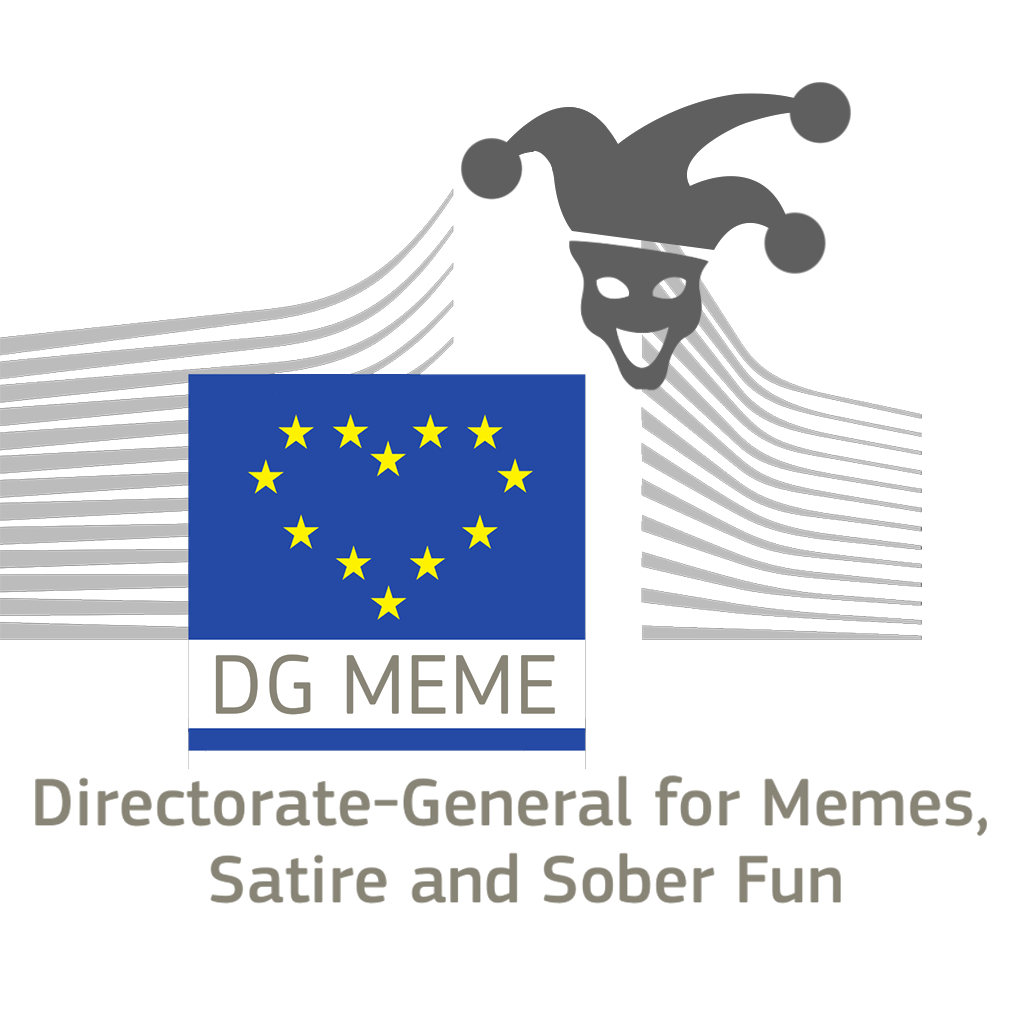Since I was a traineeWhile everybody else was thinking of becoming an astronaut or a princess, a trainee, as a child, had only one dream: "Working in the European Institutions". And they never gave it up! They sent their cv, they filled in creative motivation letters, they learned to use the ugly ECAS website,... at the Commission I was always intrigued by Valdis Dombrovskis: his institutional smiles, his precise statements, his lulling voice… One day my curiosity took over and I finally reached out to his team, asking for a short interview. They were so kind to accept and, to my surprise, I discovered that the curiosity was mutual, as EVP Dombrovskis also reads DG MEME.
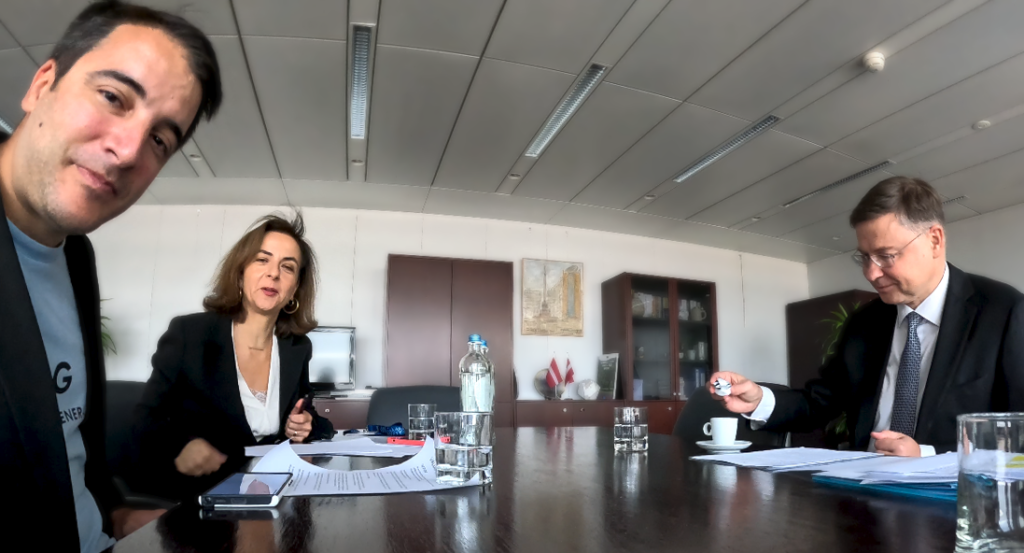
When I reached his office on the 12th floor of the Berlaymont, I was welcomed with a big smile and a firm handshake.

It’s a honor to find out that you’re familiar with DG MEME’s work!
It’s really a funny page. Actually, I’m curios, I see many colleagues bought the Dombrovskis gadgets, are they really selling?
Of course, and quite well too. Only Merry Timmermans and Ambitious yet Realistic sold more. This proves there’s a lot of passion in the EU, and with DG MEME I’m very humbly trying to communicate that. So thank you again for taking part in this attempt of bringing commissioners closer to people..
What can you tell us about young Dombrovskis? What was your dream job as a child?
Unsurprisingly, as a child my dream jobs changed quite often: first I wanted to be a truck driver, then, as we were living close to the railway station, a train driver. As a young boy, when I started reading about medieval history, I wanted to be an archaeologist. This wish lasted for a while. As an adolescent I even participated in a summer excavation project in the Turaida Castle, close to Sigulda.
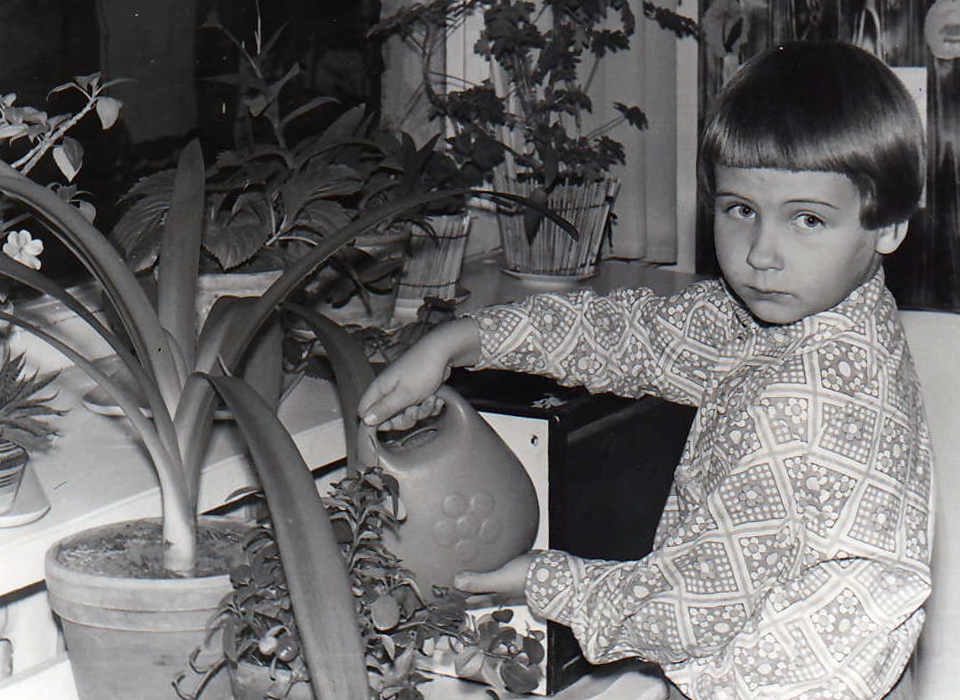
Was this a student activity or a proper job?
It was a summer activity, as a student. In high school I took part in some maths and physics competitions and I discovered I really loved that. So I continued studying physics at the university.
You didn’t immediately enter politics, right?
No, in fact I started to study physics in 1989. I got my bachelors degree in 1993 and my Masters in 1996. Then I specialized in solid-state physics, studying in Germany and in the US. In parallel, from 1992 to 1995, I studied economics because it was finally possible to study economics and not just ‘political economics of socialism’.
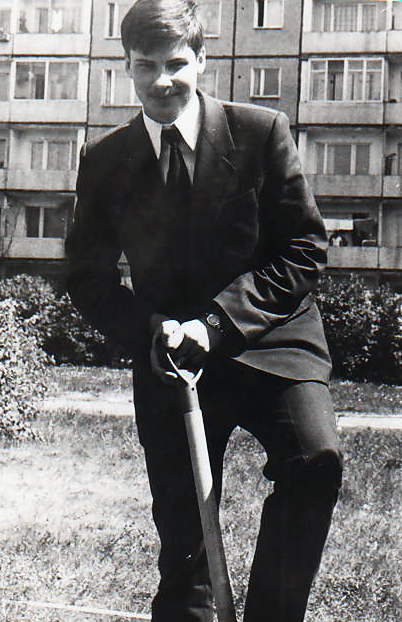
So the interest for politics came from your family?
Oh no, not at all. I grew up under Soviet occupation and my parents were not in the Communist party, so there was absolutely no politics at home.
I see, still one can’t avoid politics at the end of the Eighties: I suppose you did take part in the Baltic Way?
Of course!

Can you describe that day?
In central Riga, where I was, it was very crowded; in the countryside there was more space, they had to hold some objects to cover the full distance.
Was your family supportive of this manifestation?
Yes, they were, as everybody. It was a great feeling of unity of the nation back then. Later, of course, we started arguing about everything.
Were people scared of a possible repression?
No, because the manifestation was authorized. The atmosphere was cheerful, like at a music festival.
I grew up under Soviet occupation and my parents were not in the Communist party, so there was absolutely no politics at home
How did you experience the Fall of the Berlin Wall?
That event showed me that times were changing. It reinforced the National Independence movements of the Baltic States which started with the Singing Revolution in 1987.
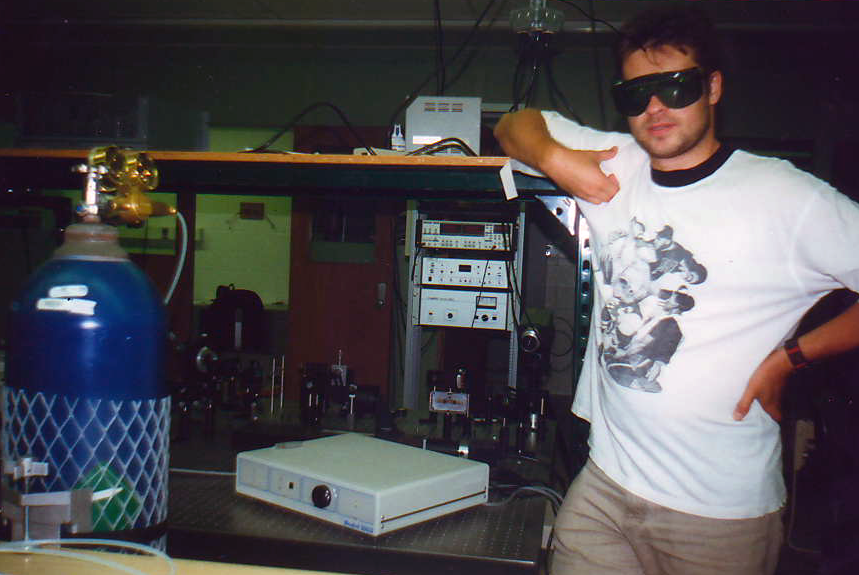
My friends from Germany always stress how unexpected the Fall of the Wall was for them. Are you saying in the Baltics you were not so surprised?
In a way, things were already changing and that event proved that we were on the right path. But of course I was just a young student back then and not in any leading position, so you might want to ask the leaders of the Popular Front, like MEP Sandra Kalniete.
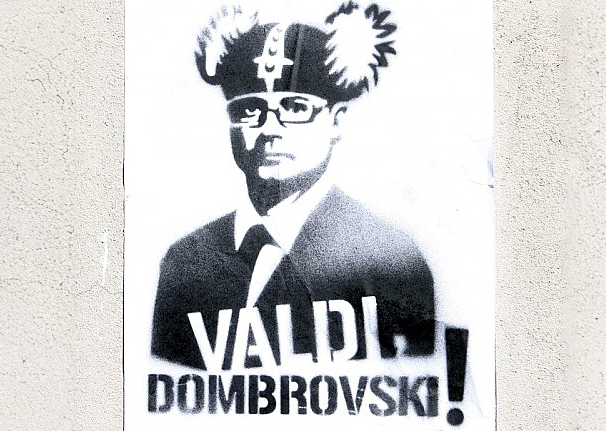
So after all this studying you finally entered politics.
Yes, I was finance minister from 2002 to 2004. Then I went to the European Parliament in 2004. In 2008 the crisis started and the government fell. My party went from opposition to government, and as a result I was called to sort out the crisis. This political government was supported by a five-party coalition, to be honest.
Like in Italy, amazing!
In my experience, I’d say a two-party government can be equally challenging.
In 2008 the crisis started and the government fell. My party went from opposition to government, and as a result I was called to sort out the crisis.
An expert of custom and taxation leading a political government… Why do you think technocracies, and I mean this term in a positive way, fail to persuade people?
We probably need some more in-depth studies, but I wouldn’t say that technical governments score worse than political ones.
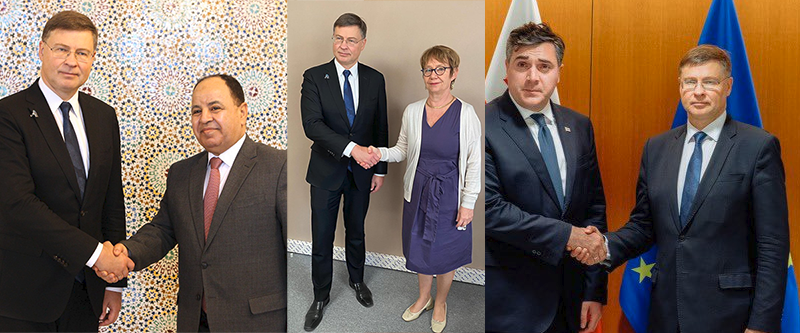
Not even in terms of popular support?
No, that wouldn’t be my perception. Of course populist politicians offer easier solutions that usually don’t work and drag the country into trouble. Because of that they do not last very long, once they reach power. And then people call on “regular” politicians to clean up the mess.
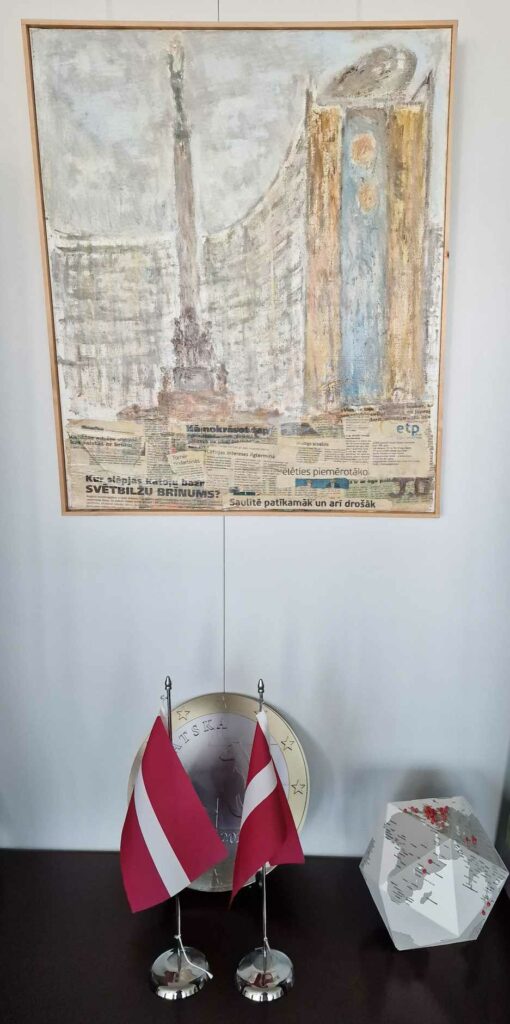
Oh, this is a very optimistic point of view, it gives me hope. Talking about technique and preparation: you’ve been managing a giant portfolio, negotiating anything, from EU-Uzbekistan cooperation to regional trade… How do you prepare to face such complexity? Do you rely entirely on your team or do you need to feel absolutely confident on any dossier?
Well, I definitively read all the briefings so that I am ready when I meet my counterparts. Sometimes friends ask me: “What is the last book I read?” and the answer is always “the briefing of my last meeting”
[Vanessa] You should know that as a cabinet we produce very detailed briefings, like a mini- encyclopedia about the country or politicians that we are about to meet. And the EVP goes through all of that, but he has a secret weapon: he has a photographic memory, he just remembers all the information that he reads, including stats.
Impressive! You don’t need to point-and-shame, but would you say your counterparts usually go through the same preparation process?
Well, it depends. I’d say when we’re discussing a country’ interests, my interlocutors usually know well what they want and what they don’t want. In most cases, it’s not a bilateral meeting, we all have our experts with us, so if the meeting gets way too technical they will add their input.
And what is the achievement you’re most proud of?
From my work in the EU, for sure NextGenerationEU, especially the Recovery and Resilience Facility negotiations. That was a turning point in the way the EU tackled COVID. From the work in my country, I’m really proud I got Latvia into the Eurozone, possibly my greatest achievement.
Populists offer easy solutions that usually don’t work and drag the country into trouble. And then people call on “regular” politicians to clean up the mess.
Emotionally, how do you know a huge decision like that, that impacts so many lives and companies, is right? Is it a gut feeling, is it a rational reasoning?
In the case of the Euro, this was a rational process – even if feelings were also involved. There were lots of conspiracy theories floating around, especially as we adopted the € during the Eurozone crises; they were saying: “You’re buying the last ticket to the Titanic”. And I told them: “Listen, the € is primarily about economics, so let me explain what it brings to our economy”. I checked the numbers, and I was absolutely convinced of what I was doing, I was sure it was a good thing for my country. Nowadays 75-80% of Latvian people support the €.
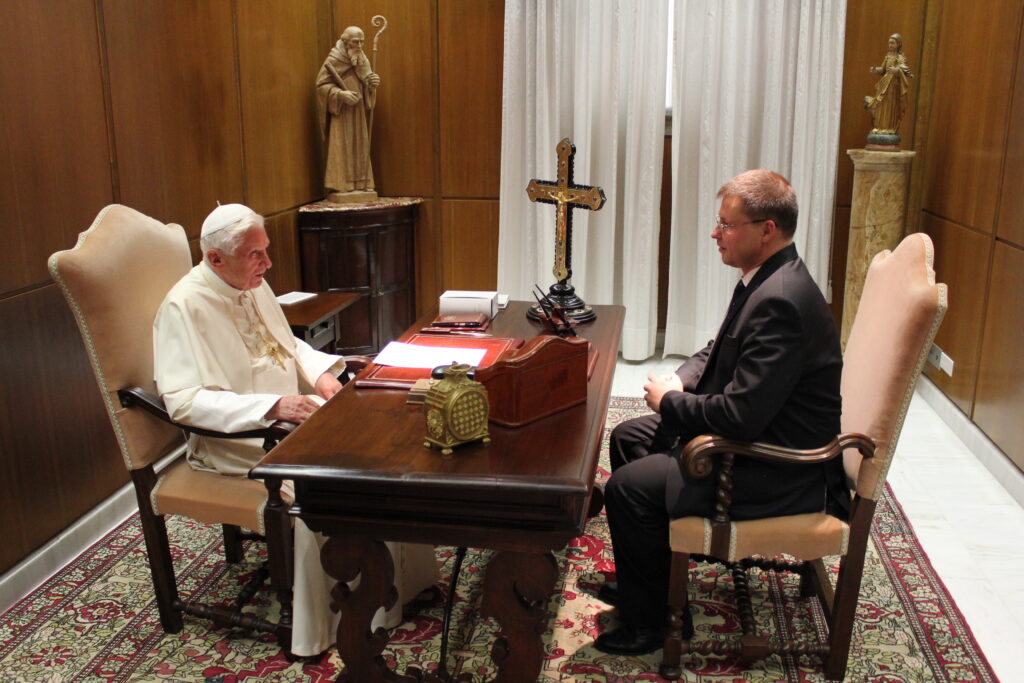
Is it hard to travel so much?
It is, especially after two years of COVID, during which we got used to remote conferences. In the past weeks, I have been to Japan, Korea, Vietnam, China, Morocco, Spain, Estonia, Washington D.C. and LuxembourgLuxembourg (abbr. LUX) is one of the funding members of the European Union, with a curious inverse relationship between its size and the cost of housing. Its considerable community of eurocrats is haunted by the constant feeling of being ignored by their colleagues in Brussels. Or the rest of the... – and I am probably forgetting some!
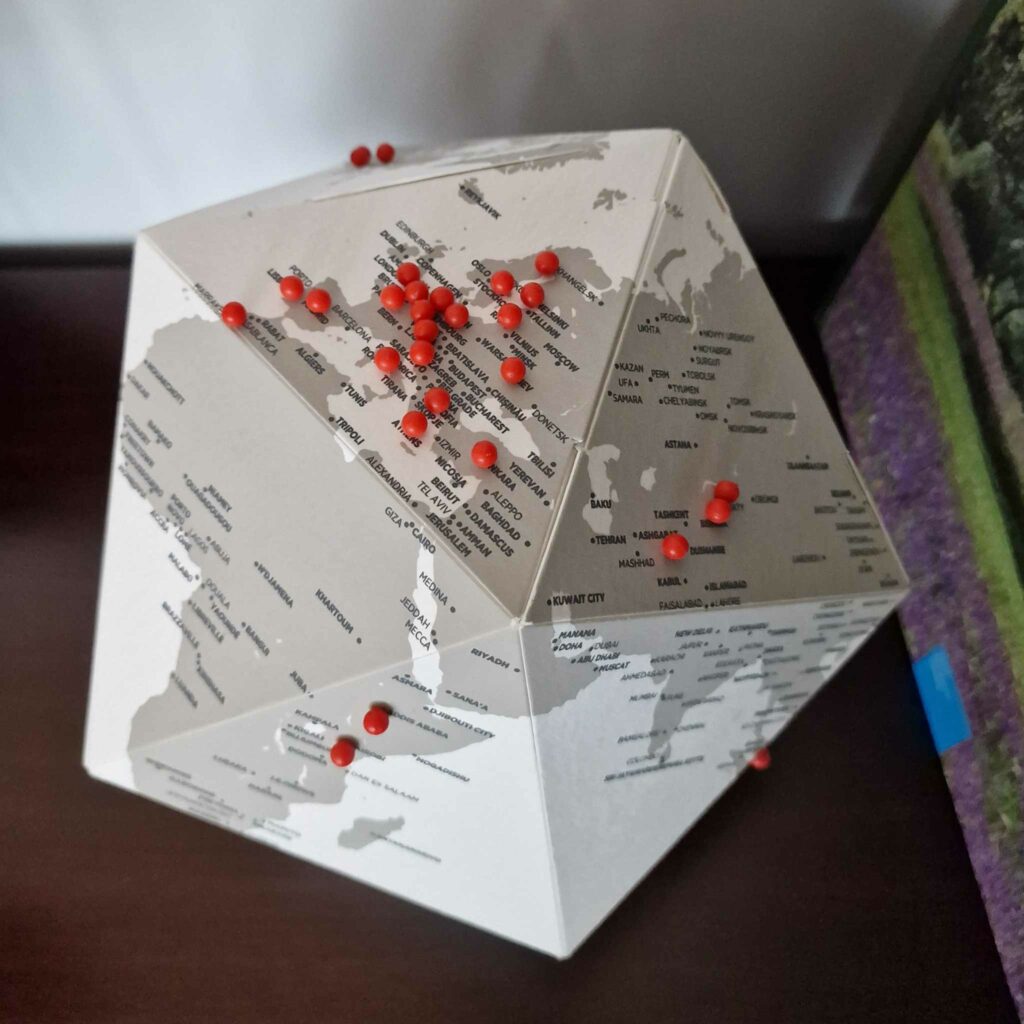
I see you have a map of the world to keep track of that...
And it’s not even up to date!
I guess, despite all the efforts of your assistants, many unpredictable things happen in such business trips?
Absolutely! There have been many crazy dashes across airports – too many, actually! – and changing clothes in improbable places. One time when I was on my way to the airport in my casual clothes we had to do a last minute U-turn, so I could change at the back of the car to look presentable for a meeting. That’s not unusual!
You can judge a commissioner by his tuxedo, after all. And how do you deal with the stress of all these decisions and meetings? Do you have a secret or stress simply doesn’t impact you?
Let’s say, with time and experience you learn to rewire. But I also meditate to keep some peace of mind.
I do meditate to keep some peace of mind
Any specific technique or guru?
Not really, nothing fancy, just standard meditation.
Are you still practicing any sports? I read that as a young man you played basketball quite often.
Ah, that was more of a hobby, nothing very competitive. Unfortunately my work is very irregular, lots of travels and moving around, so I can’t really practice sports.
What about friends? You meet so many people that want things from you, is it easy to have just regular people you can be yourself with?
Oh, I still have friends from my youth. Of course, they are used to the fact that I’m often away but otherwise we keep in contact.
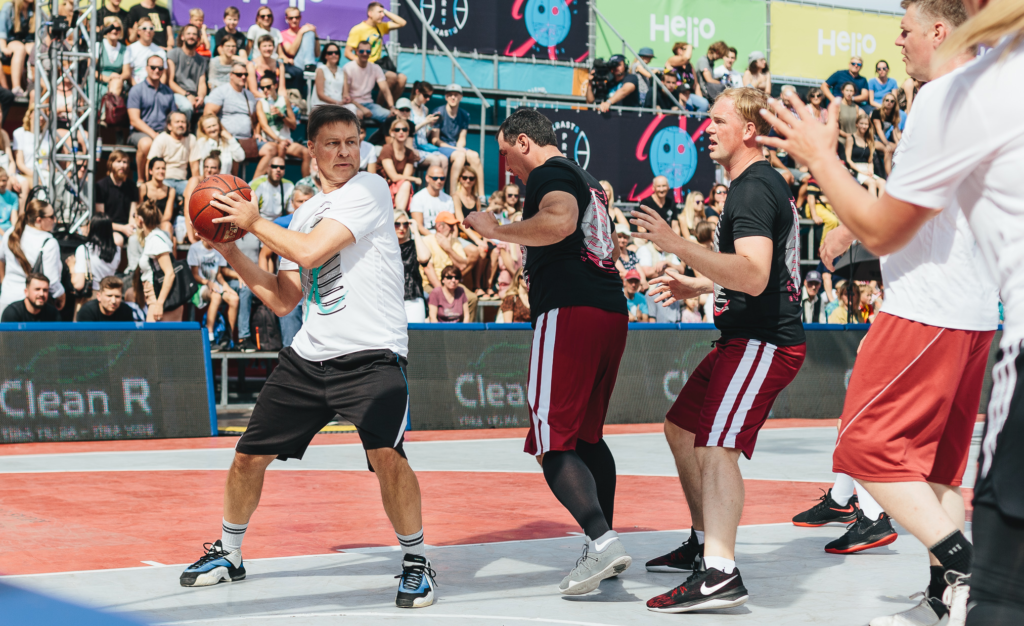
In fact, I always have the feeling that the pictures in which you smile the most are those from Riga. Usually you look very serious, your counterpart is smiling and you are very institutional. Is that a communication choice?
I’m afraid it’s just my style.
My serious attitude in pictures? I’m afraid it’s just my style
But I see now you’ve been smiling a lot and even making jokes.
[Vanessa] Actually, he does joke a lot.
Let’s see if I can make you laugh even more. I bought you a little present, a very satirical one. Thank you so much for your time!
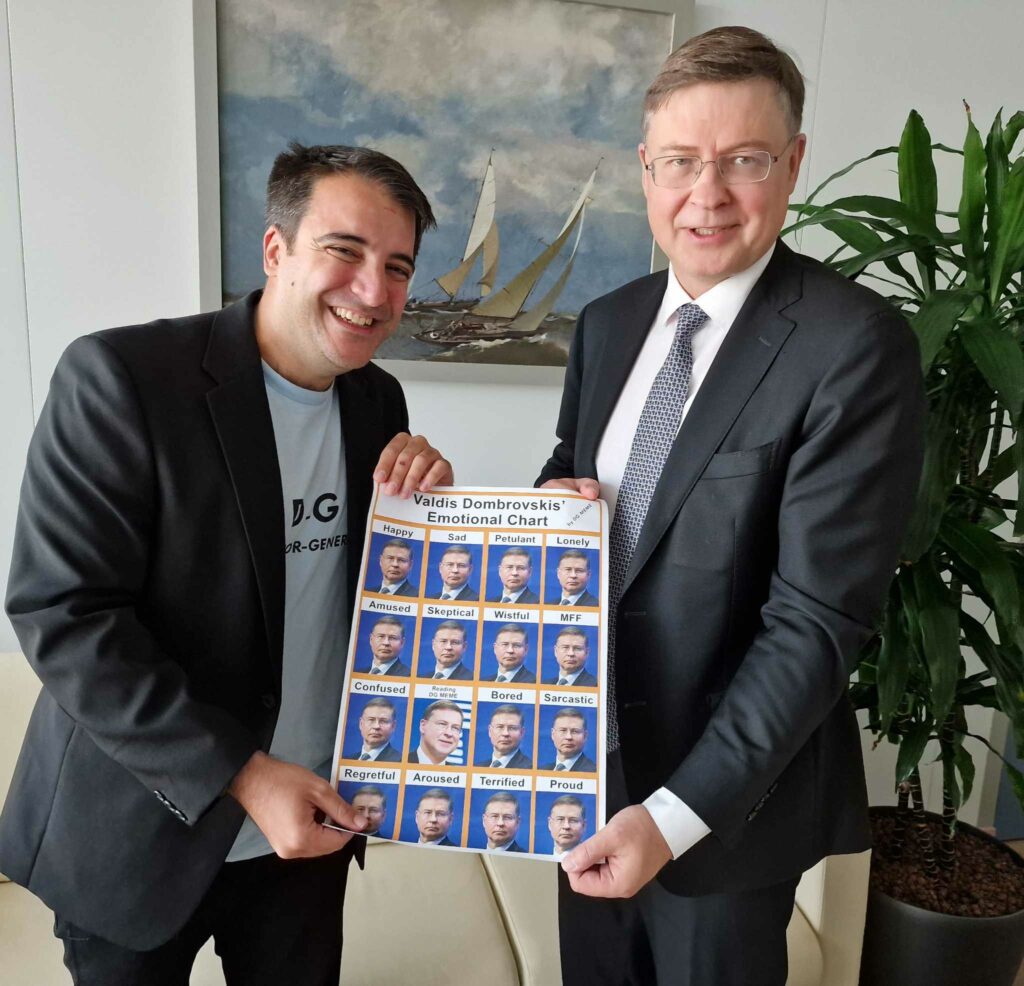
A big thank to Vanessa, for helping to organize the meeting; to Lilita for the precious Latvian culture clarifications; to Rafael and Anna for the caring proof-reading; and to all the photographers I stole the pictures from, I hope you’re fine with that, otherwise let me know, I can also add credits, in case.
